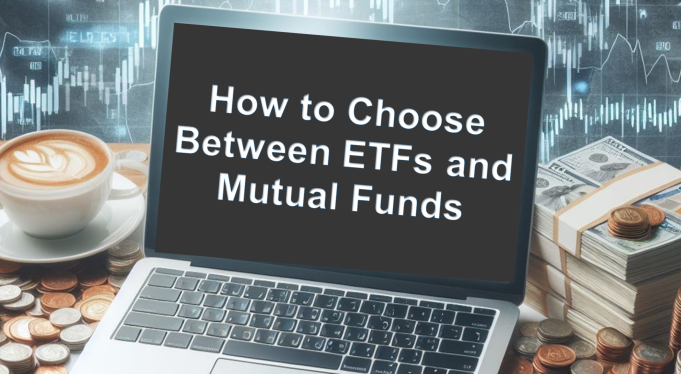Investing in the financial market can be a complex task, especially when deciding between investment vehicles like Exchange-Traded Funds (ETFs) and Mutual Funds. While both offer a means to potentially grow an investment portfolio, they differ in several ways. This blog post will explore these differences, particularly from a Canadian perspective.
What are ETFs and Mutual Funds?
ETFs and Mutual Funds are both types of investment funds, meaning they pool money from many investors to purchase a diversified portfolio of stocks, bonds, or other assets.
Exchange-Traded Funds (ETFs)
ETFs are investment funds traded on stock exchanges, much like individual stocks. They aim to track the performance of a specific index, sector, commodity, or asset class. They offer the flexibility of buying and selling shares at any time during the trading day at market prices.
Mutual Funds
Mutual Funds, on the other hand, are investment vehicles managed by professional money managers. The fund’s net asset value (NAV) is calculated at the end of each trading day, and all buy and sell transactions are conducted at this price.
Key Differences
Trading Flexibility
ETFs can be bought and sold throughout the trading day at market prices, offering more flexibility than Mutual Funds, which only transact at the end-of-day NAV.
Management Style
ETFs are typically passively managed and aim to replicate the performance of an index. Mutual Funds, however, are often actively managed, with a fund manager making investment decisions in an attempt to outperform the market.
Fees
ETFs generally have lower expense ratios than Mutual Funds due to their passive management style. However, since ETFs are traded like stocks, investors may incur brokerage commissions.
Minimum Investment
Mutual Funds often have minimum investment requirements, while ETFs do not. Investors can purchase as little as one share of an ETF.
Tax Efficiency
ETFs are often more tax-efficient than Mutual Funds due to the “in-kind” creation and redemption process, which helps limit taxable capital gains distributions.
A Canadian Perspective
In Canada, both ETFs and Mutual Funds are widely available. Canadian investors can access a broad range of ETFs on the Toronto Stock Exchange (TSX), and Mutual Funds through various financial institutions.
One key consideration for Canadian investors is the tax treatment of foreign dividends. Canadian investors holding U.S. or international ETFs in non-registered accounts may be subject to foreign withholding taxes.
Conclusion
Both ETFs and Mutual Funds have their advantages and can be suitable for different types of investors. ETFs offer trading flexibility and lower costs, while Mutual Funds offer professional management and simplicity. As always, it’s important to consider an individual's financial goals, risk tolerance, and investment horizon before making a decision.
Discover the Power of ETFs with ETF Update!
Our ETF Update newsletter is your ticket to expert insights, top-quality fund research, and educational resources on ETFs. With 12 monthly issues, plus access to past editions, this is your essential guide to ETF success.
- Monthly Wisdom: Gain fresh perspectives and stay in the know with 12 information-packed newsletters delivered directly to your inbox throughout the year.
- Top-Quality Fund Research: Our experts do the heavy lifting for you. Access in-depth research on the finest ETFs, helping you make informed investment decisions.
- Educational Resources: Whether you're an ETF enthusiast or a beginner, our resources cater to all levels of expertise. Expand your knowledge and master the world of ETFs.
Research for Today, Invest for Tomorrow.

Twitter: @5iChris






Comments
Login to post a comment.